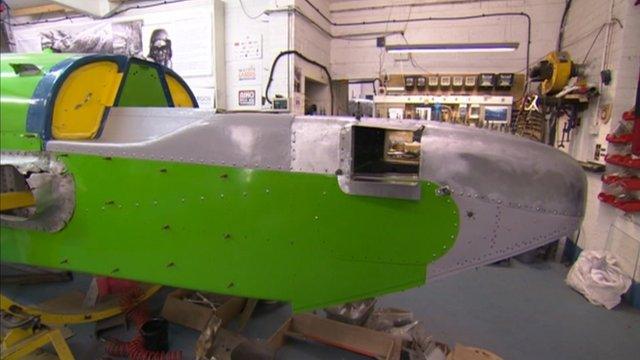Donald Campbell's daughter wants restored Bluebird returned to Coniston
- Published
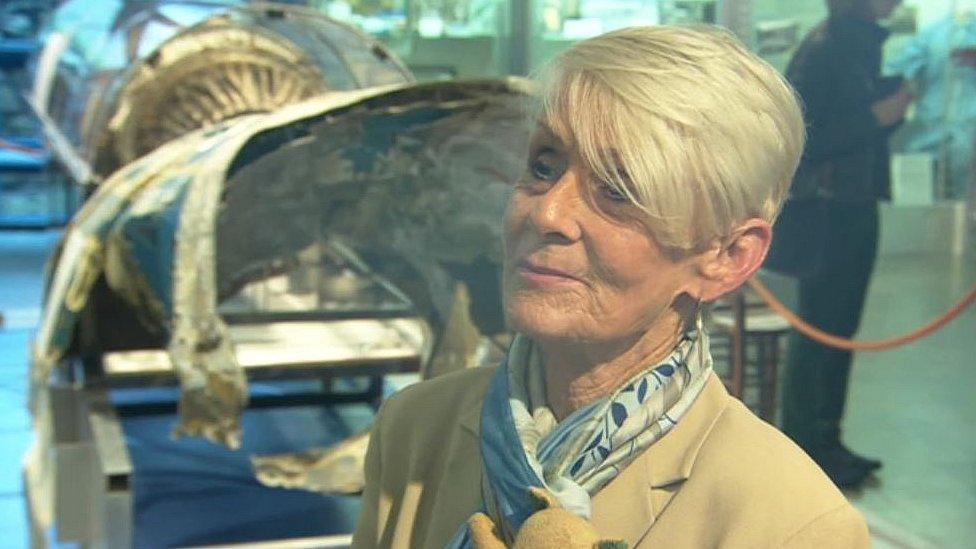
Gina Campbell said Bluebird should be returned to Coniston as soon as possible
The daughter of Donald Campbell has called for a restored Bluebird to be returned to the scene of his death in the Lake District 53 years ago.
Wreckage was recovered from Coniston Water almost 35 years after Campbell's fatal crash in 1967 and restored by Tyneside engineer Bill Smith.
But a legal row has raged over whether the hydroplane should go out on display or be housed at a purpose-built museum.
Mr Smith said a contract should be in place before Bluebird is returned.
Campbell died at 08:51 GMT on 4 January 1967, while trying to break his own water speed record. His remains are buried at Coniston Cemetery.
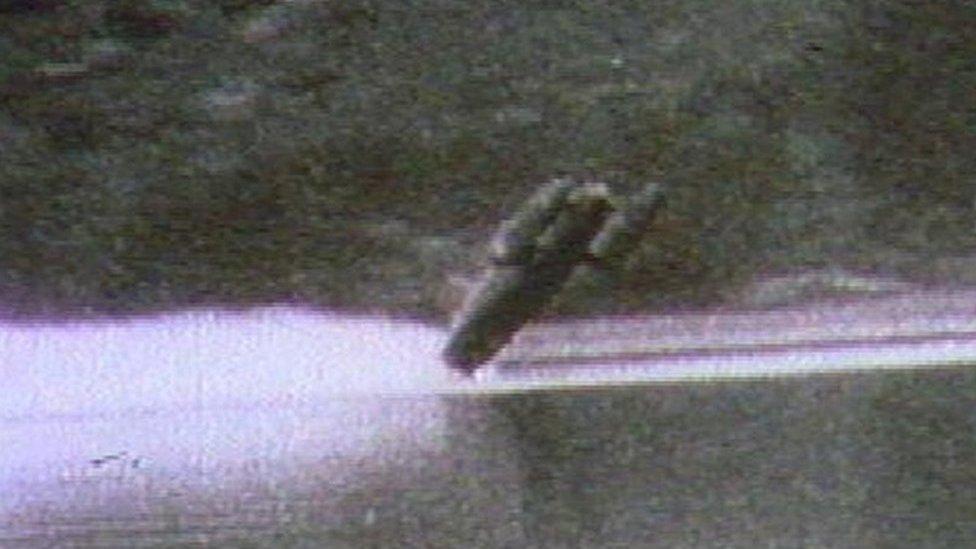
Donald Campbell was killed on Coniston Water in January 1967
The Campbell family gifted the wreckage to Coniston's Ruskin Museum, but after spending years restoring Bluebird, Mr Smith says he should be allowed to show it in action at public events.
Last year, Ms Campbell said Bluebird was "not ready to sit in a crusty old museum".
But in a change of heart, she told those gathered in Coniston to commemorate the 53rd anniversary of her father's death: "When Bluebird was handed over for restoration, I made a promise to the people of Coniston that the boat would be returned.
"It is absolutely imperative that Bill Smith brings my father's boat back here to Coniston as soon as possible.
"It's a tragedy that such a magnificent endeavour ends in this rather sad way.
"The museum has every desire to see the boat back on the lake. But it has to be returned to Coniston."
The restored Bluebird has undergone trials in Scotland, but has so far not been seen back on Coniston Water.
Currently the museum owns the wreckage but there is a legal dispute over who owns what has been added to it.
Mr Smith's Bluebird Project claims to own all the additions.
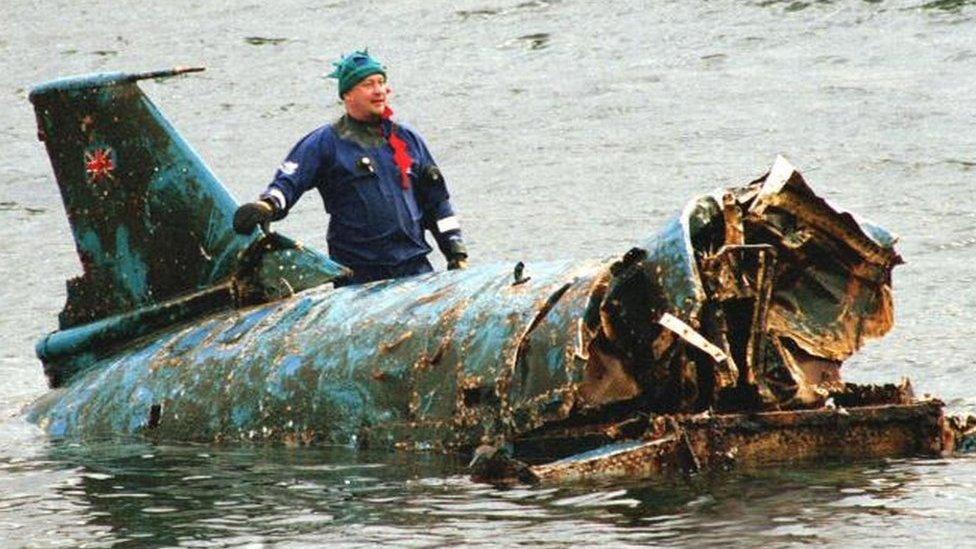
Bill Smith recovered Bluebird's wreckage in 2001
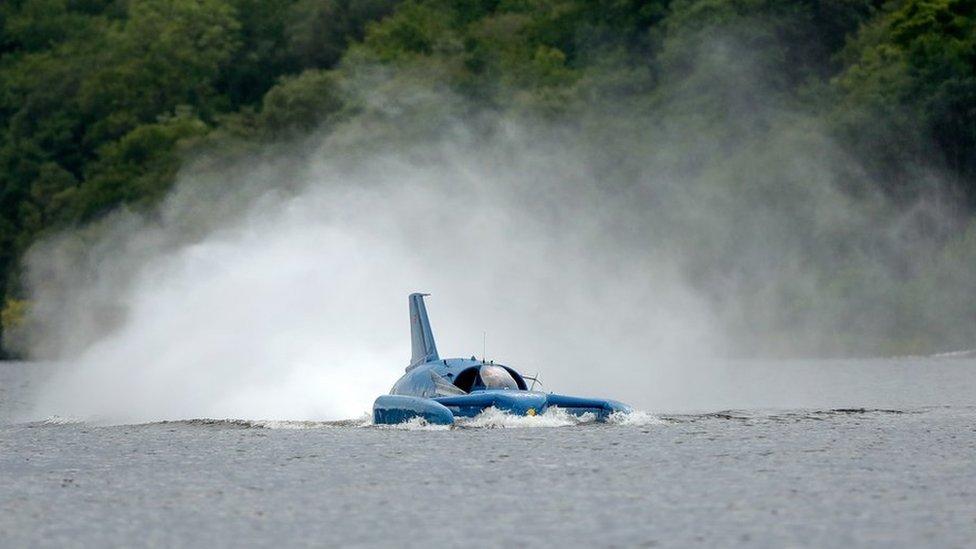
Bluebird reached speeds up 150mph (240kph) on Loch Fad on the Isle of Bute in Scotland
In a statement the Ruskin Museum trustees said: "As custodians and trustees of the museum our obligations are to preserve, protect and defend one of the most iconic boats in British history for the benefit of the public.
"What Bill Smith and his team of volunteers have achieved is remarkable. Our duty as an accredited museum is to ensure that Bluebird can be shown off to all who want to see her and learn about her exceptional story."
Allow X content?
This article contains content provided by X. We ask for your permission before anything is loaded, as they may be using cookies and other technologies. You may want to read X’s cookie policy, external and privacy policy, external before accepting. To view this content choose ‘accept and continue’.
Mr Smith said: "We've said the museum should have the boat for nine months of the year and we should be able to take it out for three months.
"I've yet to meet anyone that doesn't think that is a perfectly reasonable compromise.
"We just need it written down in black and white, then we can crack on and everyone gets what they want."
An £800,000 extension at the Ruskin Museum to house Bluebird was completed in 2010.
- Published12 February 2019
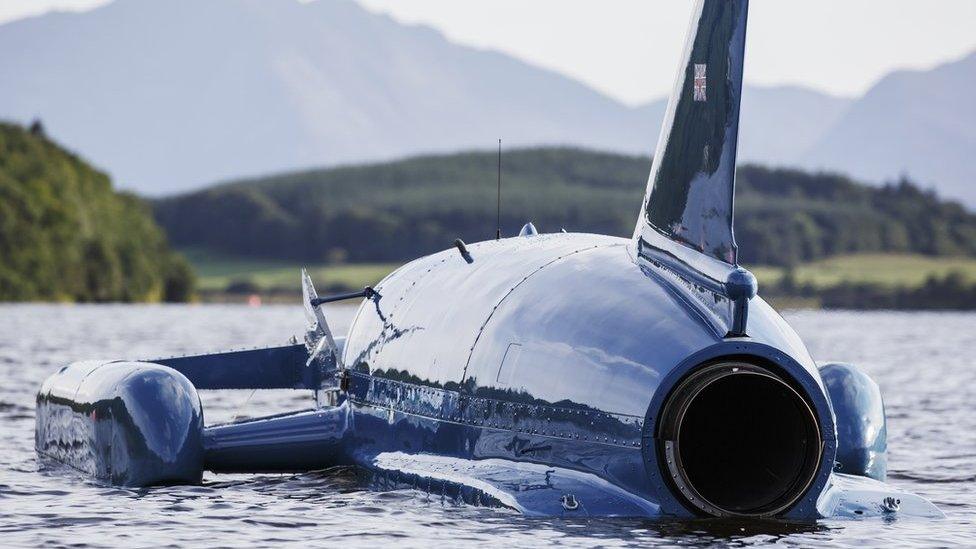
- Published8 October 2018
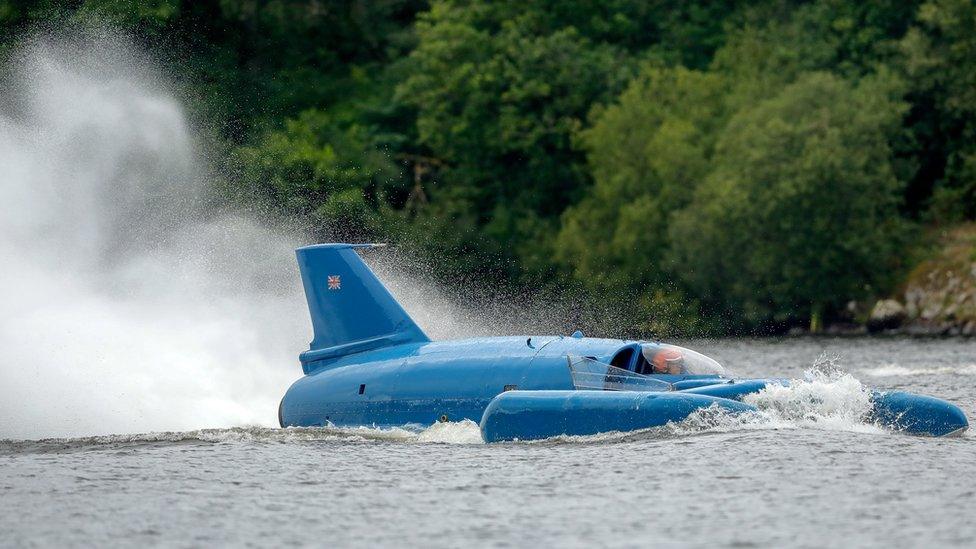
- Published15 August 2018

- Published7 August 2018
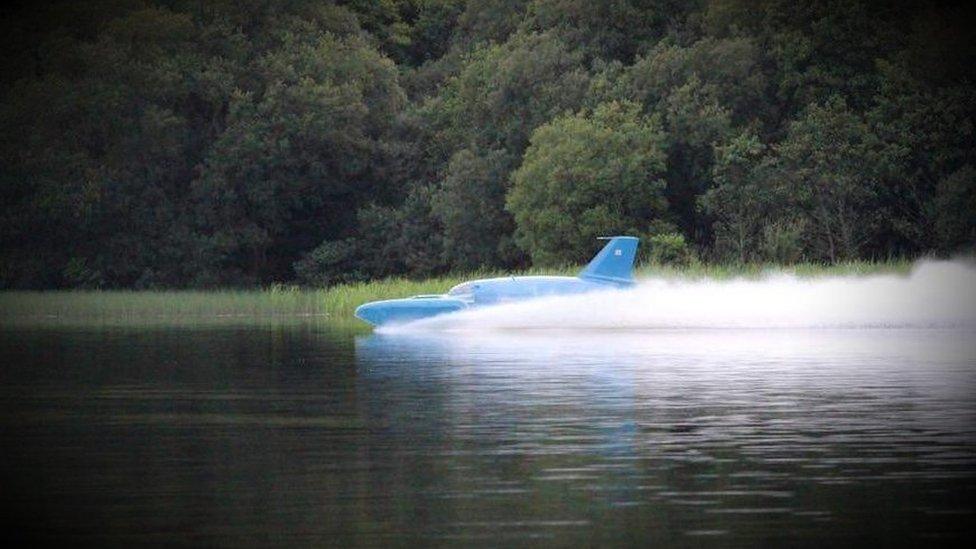
- Published4 August 2018
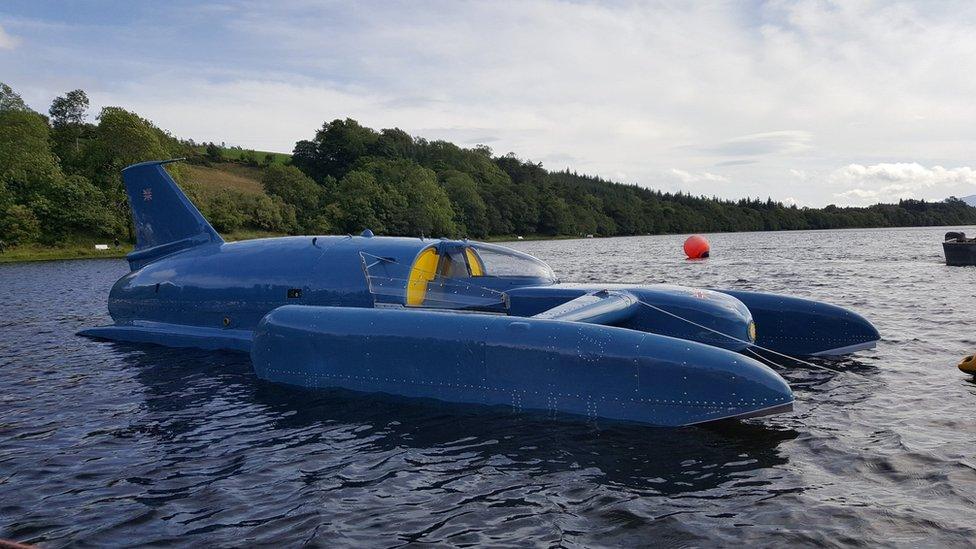
- Published4 January 2017
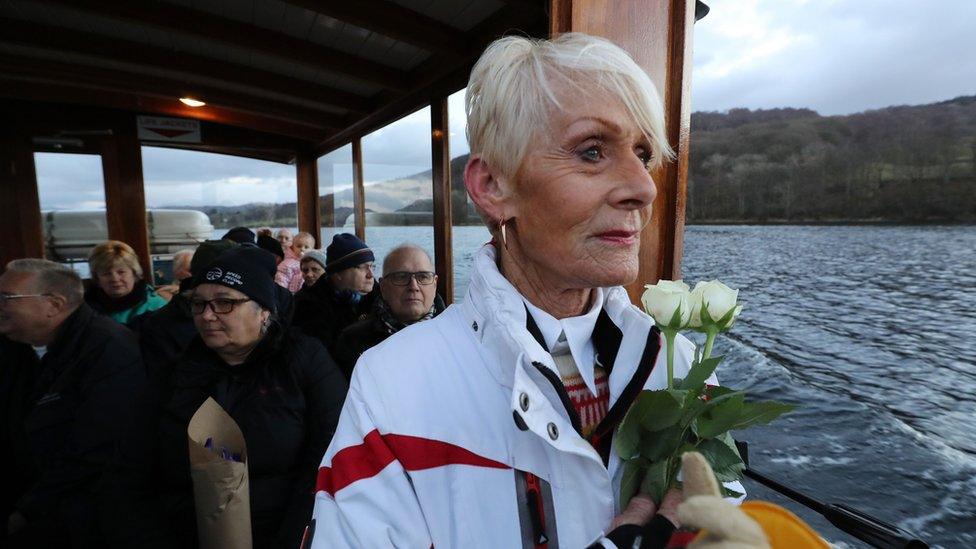
- Published7 November 2016
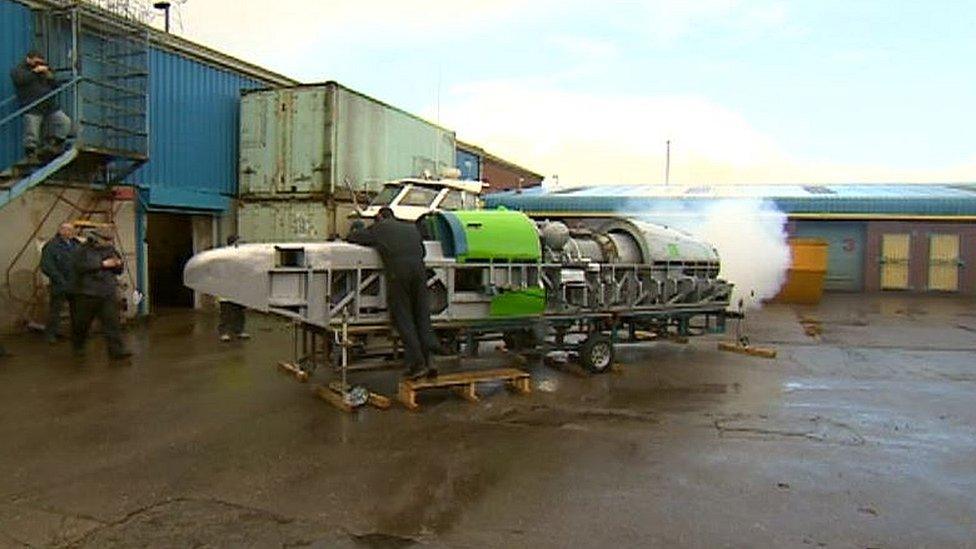
- Published16 July 2014
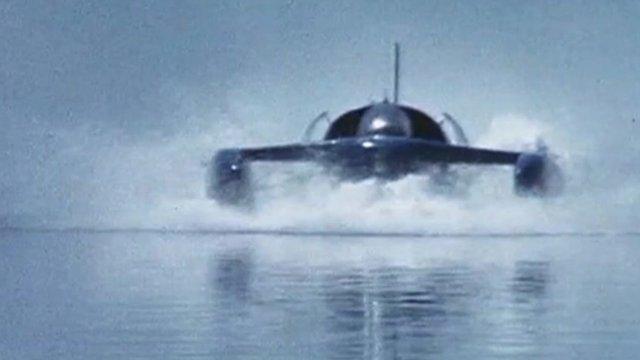
- Published15 February 2013
